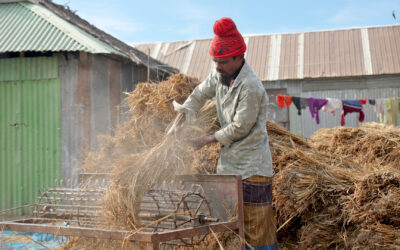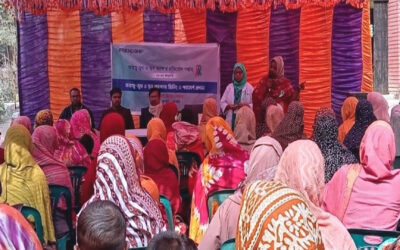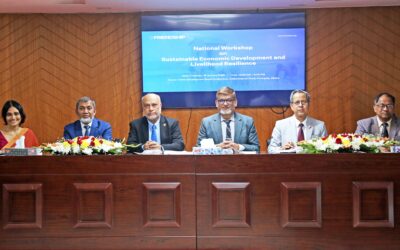An interview with a visually-impaired trainer on inclusivity and being a disabled person in Bangladesh
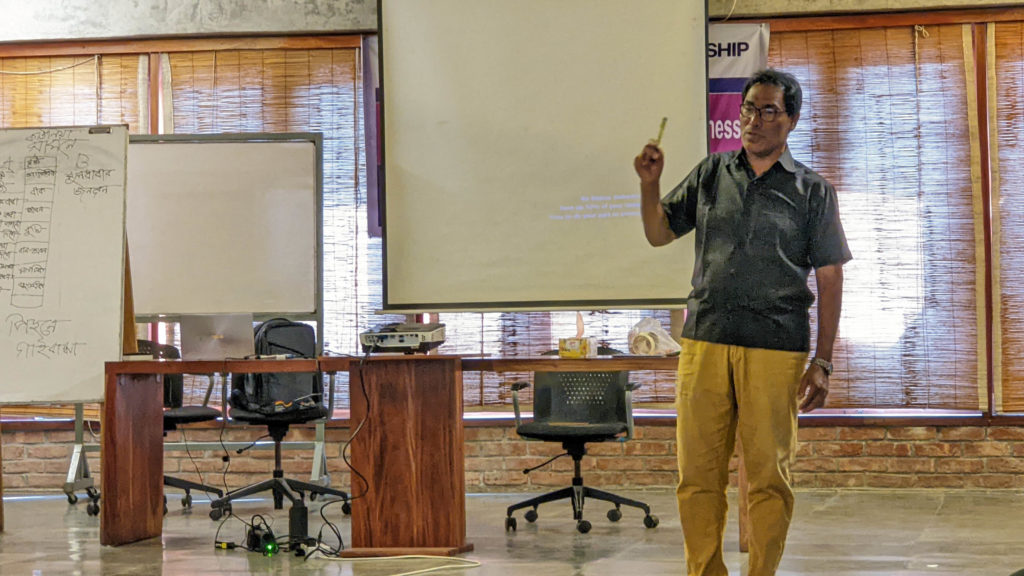
by Tahmeed Chaudhury
May 18, 2022
Muhammad Jahangir Alam is a Senior Coordinator at the Centre for Disability in Development. He has a postgraduate degree from the University of Dhaka’s Department of History. A person with visual impairment himself, he spoke about his experience and expressed his views on the present circumstances of people with disability, while building the capacity of Friendship staff during a training session on inclusivity.
Q. May I ask you about your circumstances?
A. I have visual disability, in other words – poor eyesight.
Q. What challenges did this lead to?
A. Truth be told, it has been tough. It is hard to mention everything I have faced in half a decade of life but I will try to summarise it as much as possible.
In the past, there was an absence of adequate treatment. Perhaps my impairment could have been alleviated had there been proper treatment for persons with disability.
Additionally, I could not pursue mainstream education; I had to be enrolled in special education. So there was no inclusivity, rather segregation from normalcy. I could not study any subject I wanted, there was a lack of appropriate adaptive technology to assist us back then and education was three to five times more expensive for me than others.
In my career, I did not have freedom of choice with regards to an area of work. There is social stigma, technical and environmental barriers, and an unwillingness of organisations in hiring people with disability. In addition, the rights and protection act for persons with disability was not passed until 2013, so we had very few options. It was hard to compete in the job market.
Despite these challenges, I am happy with my career. I have worked in various national and international organisations over the years and been paid decently. Not everyone is as lucky as I am.
In my personal life, I faced challenges too. The basic need of everyone is to get married, have a family, find employment and reach a respectable position in society. This is tough for us.
Q. Is there any anecdote of you facing social stigma or ill behaviour from people due to your condition?
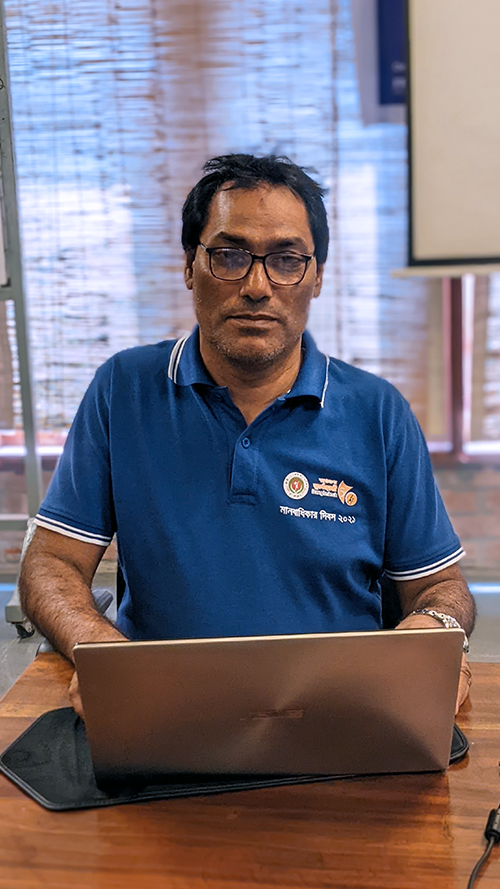
A. Countless times.
There was an instance where I was ostracised in community. At my local mosque, during khudba a person once asked my father how his son’s “collections” are coming along. This referred to the notion that people with disabilities are likely to be beggars. My father reacted. The mosque’s khudba was stopped. Conflict ensued in the community. My father was threatened.
When I was younger, people believed I was visually impaired because my father, who was a businessman, cheated people. This is how people often perceive disabled people.
Q. You have overcome many challenges in life to be where you are today. What was your motivation?
A. First of all, my parents. They weren’t the most educated, but they believed in me and did not neglect me due to my condition. They told me to make the most of what I have and to make something of myself.
Second, when I joined special education, I became a part of a community of persons with disability. Having teachers with visual impairment motivated me further. I felt that if they can do it, I can too.
I was involved in community service, volunteerism and activism for disability during my college days. This enlightened and motivated me too.
Q. You took a capacity development training of Friendship’s employees on inclusivity. Can you shed some more light on what it was about?
A. This was a large-scale training to educate participants about the inclusion of persons with disability in our society. Topics covered include the definition of persons with disability, the social stigma surrounding them, present circumstances they find themselves in, the disability rights and protection act 2013, the twin track approach to disability inclusivity, how NGOs contribute to disability inclusivity, etc.
The training imparted holistic knowledge on how to interact with disabled people, mainstream their inclusion in society, the dos and don’ts when interacting with them and the short/long term plan on the pathway to their inclusion.
Q. What purpose do these training sessions serve?
A. The main purpose is to transform the mindset of people from a negative to positive trajectory. These sessions inform people about the struggles, harassment and stigma faced by disabled people, create empathy and work to change society’s attitude towards them. Furthermore, they help participants understand how to skilfully handle persons with disability.
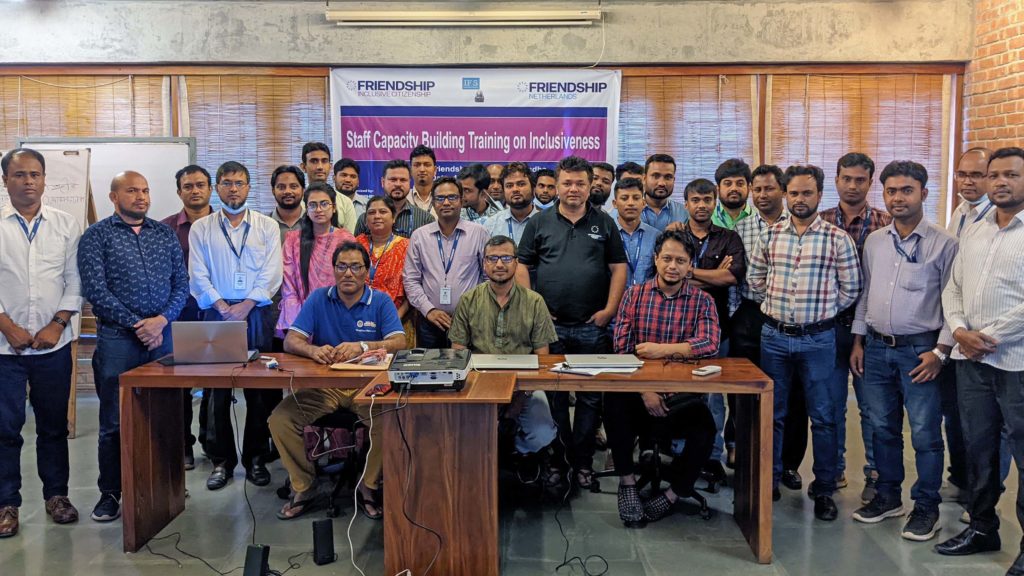
Q. What do you think about the treatment of persons with disability in Bangladesh?
A. Things have changed a lot over the years. There are proper rehabilitation centres, many NGOs are working for the rights and inclusivity of persons with disability and many cross-cutting initiatives are there for the welfare of people with disabilities.
Compared to the past, people are more aware and educated about disabilities as well, hence empathy has increased too. There are more opportunities to study and work for people with disabilities.
Of course, the discrimination and ill-treatment persist but the treatment of persons with disability has slowly improved; this practice needs to continue and hopefully it will be much better in the future.
Q. As a person with disability yourself, what would say to people without disabilities out there?
A. What I would like to say is that disability is not a limitation or an inability. People with disabilities are indeed capable just like others. If you check, you will find that there are many successful people who have some form of disability.
Disability is in fact an integral part of human diversity.

